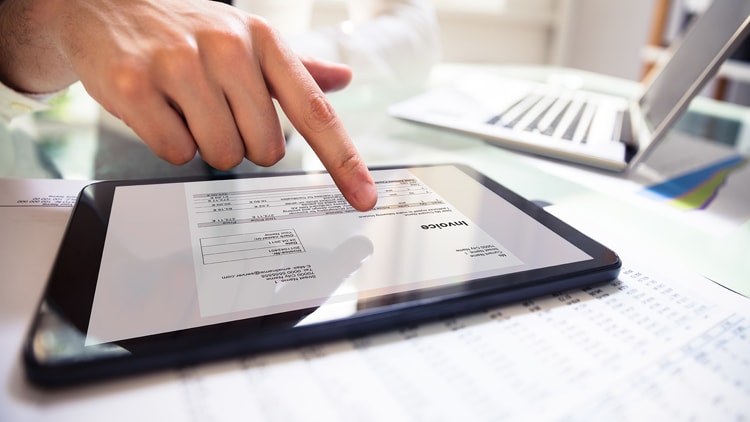Sooner or later all businesses will transition to electronic invoicing – the question is how. There is still a great deal of uncertainty, both in terms of interpreting the legal background and the practice of the authorities, including the methods, technologies, and formats used for e-invoicing. PwC’s SmartTax consulting services and software solutions provide clear guidance, full compliance, and concrete IT systems, so that transitioning to e-invoicing should result in a competitive advantage, efficiency gains, and cost savings, rather than risks or uncertainty.


Since 1 January 2021, taxpayers have been obliged to submit their invoice data to NAV’s Online Invoicing System using version 3.0 of the tax authority’s XSD schema. As of 1 April 2021, failure to do so may be sanctioned.
This reporting obligation is no longer just an administrative or technical requirement, but also an opportunity, as companies can now use the reported NAV 3.0 XML files as e-invoices – incoming or outgoing. This way, the issuing and sending of e-invoices, or even their receipt, can become a one-step process, i.e. it is not necessary to issue the invoice and send it separately to the customer and additionally report its data to NAV, but e-invoicing can be implemented by simply supplying the invoice data to the tax authority.
The integrated implementation of the appropriate modules of PwC’s SmartTax solution makes it easy to automate the receipt of e-invoices from NAV’s Online Invoicing System (or from other sources), as well as the issuing and sending of e-invoices.
Sending e-invoices
In addition to receiving, converting and transferring invoice data, PwC’s SmartTax Online Reporting Tool can send the XML to be reported to NAV’s Online Invoicing System in such a way that it can be used as an electronic invoice. This means that it can perform the following functions:
- mark the submitted invoice data so it can be used as an e-invoice;
- generate and transfer to the tax authority’s system the hash codes that are mandatory elements of e-invoicing and e-archiving;
- support the proper archiving of e-invoices sent in this way; and
- produce a copy of the invoice in PDF format, if requested, including the relevant hash codes, and send it to the customer’s e-mail address.
If you are interested in this feature of the Online Reporting Tool, click here to find out more, or contact us with your questions or request a quote by filling out the form below.
Receiving e-invoices
Developed specifically for receiving, verifying and approving incoming invoices, the SmartTax portfolio’s Book your XML solution can also receive, store and archive e-invoices in NAV’s 3.0 XML or other formats, in compliance with the relevant rules.
From the date of issue or receipt of the invoice until the end of the retention period, PwC’s Book Your XML solution can ensure that e-invoices meet the following requirements specified by the VAT Act:
- authenticity of origin,
- integrity of content, and
- legibility.
.jpeg)
The application forms a closed system with the tax authority’s system and can convert the XML file into a human-readable format (which can be exported to PDF, for example), so that incoming e-invoices can be easily managed by staff carrying out the accounting and verification. This feature also supports compliance with e-archiving requirements when handling incoming e-invoices.
If you want to learn more about Book your XML, click on this link, or submit your questions or request a quote below.
E-archiving
An important requirement for electronic invoicing is that both the issuer and the recipient of the e-invoice must ensure that e-invoices are properly archived.
The VAT Act stipulates that e-invoices can only be stored electronically (the relevant requirements are set out in Decree No. 1/2018 ITM on the rules of digital archiving). Although the relevant legislation and the tax authority’s information notices on e-invoicing provide answers to key questions, there are many practical matters that still need to be addressed.

Our SmartTax portfolio includes a fully compliant, cloud-based e-invoice archiving system that can be used as an add-on module to Book your XML, or to the Online Reporting Tool, or as a stand-alone solution for storing e-invoices.
PwC Hungary’s tax experts provide e-invoicing consultancy services to help businesses set up their own infrastructure to fully comply with e-archiving requirements.







